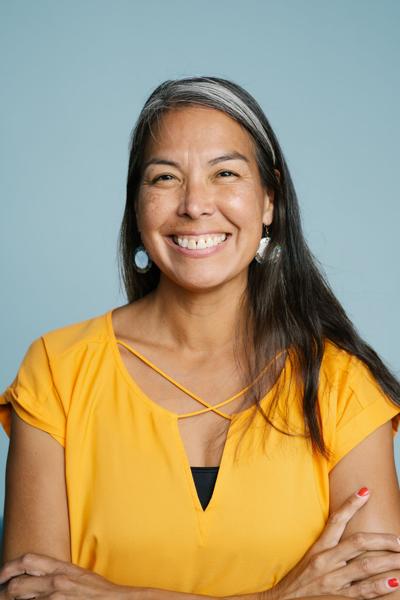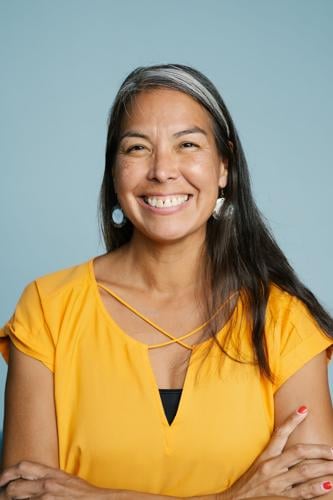State Rep. Maxine Dibert is seeking a second term in the Alaska Legislature for House District 31.
Dibert has lived in HD 31, which includes most of the city of Fairbanks, her entire life. Before her first election in 2022, she worked for 22 years as an elementary school teacher in Fairbanks.
“I’m not a polished politician,” she said. “I came from the classroom to the capital.”
After graduating from the University of Alaska Fairbanks, Dibert taught briefly at Woodriver Elementary before moving to Denali Elementary, where she taught third-graders until she was elected to the Alaska State House.
“I’ve taught thousands of kids right in the heart of my district,” Dibert said. “It’s a really beautiful thing — to have built that trust with your community. They know that I love working with families in my district. I want their grandchildren to have the same kind of education that I was able to give them.”
For Dibert, education is her top priority. And it was the reason she ran in 2022. She said friends and colleagues began asking her to run so she could advocate in Juneau for education funding.
“[In Juneau], they wanted to talk about the PFD [Alaska Permanent Fund dividend] like it was just a political football,” she said. “I was like, wait a minute, I’m coming from the classroom and kids’ needs aren’t being met.”
In her first term, Dibert helped pass a large one-time investment in public education. However, another bill she supported in the last legislative session, which would have increased Alaska’s base student allocation (BSA) — the money each school district receives on a per-student basis — was vetoed by Alaska Gov. Mike Dunleavy. A subsequent veto override failed by one vote.
“We want schools to have predictable funding that keeps up with inflation,” she said. “There’s still more work to do. We need to get money in our BSA.”
What should the state’s budget priorities be?
Our top budget priorities should be upholding Alaska’s basic responsibilities: public safety, education, infrastructure. We need to support our schools so that students are set up for success. We also need to invest wisely in infrastructure — things like roads, broadband, and energy systems — things that increase our economic growth. We should carefully manage our natural resources in a way that benefits all Alaskans over time and keeps the Permanent Fund healthy for future generations. I serve on the House Resources Committee and I am currently the only Fairbanks area legislator represented on the committee. I have championed legislation that creates high paying jobs and I will continue to promote a balanced approach that supports Alaskans today while being mindful of the future and long-term financial stability.
Education funding was a top concern in the state last session. How would you support education at the state level?
As a teacher, there is no policy issue more important to me than ensuring our students are successful. What has become clear to me, especially over the past decade, is the sad truth that we could be and should be doing a lot more for our students. I can’t stand by and continue to watch class sizes grow, programs get cut, and good teachers leave. We need to invest in our schools, and that means substantial funding that keeps up with inflation. Our schools need predictability and consistency if they are to effectively meet the needs of families and students across Alaska. We need to raise the BSA to account for the impact of inflation. We owe it to our students and it is our constitutional duty as a state.
What steps can the state take to support available housing?
I support the work of the AHFC and its subsidiary, the Alaska Corporation for Affordable Housing. They recently opened Borealis Park in Fairbanks which offers 40 new affordable housing units. It is my hope that more of these projects will be financed and opened up in Fairbanks. I support providing targeted tax credits to incentivize private developers who invest in affordable housing projects to stimulate new construction that is not funded solely by the state. Bringing down housing prices requires more housing supply across the board. I will continue to encourage partnerships between the public and private sectors to leverage resources and expertise to ensure that our approach is practical and effective
What role do national culture war topics have in the Alaska Legislature?
People are weary of extreme partisanship and the message I am hearing from constituents is don’t waste time on divisive social issues. People want their leaders to work cooperatively and focus on issues like lowering energy costs, supporting our public schools, and facilitating economic development that provides high paying jobs— and that is exactly what I plan to continue doing. Alaskans understand that legislators will sometimes disagree on issues and debate potential solutions rigorously, but at the end of the day, people want us to keep things thoughtful, civil, and focused on the unique needs of our state.
How would you work across the aisle with other lawmakers? Would you join a bipartisan coalition?
Absolutely I would join a bipartisan coalition. For the past two years, it’s been an honor to serve with a new generation of leadership: a generation not afraid to innovate and solve problems, not afraid to put party politics aside and work across the aisle to do whatever it takes to help Fairbanks and its people. This can only be accomplished through building bridges, which means establishing relationships based on mutual respect and understanding to find common ground. I have strong and respectful relationships with my colleagues from all political perspectives. I truly believe if we cooperate and listen to each other we will be able to make a difference for the people of this state.
How should the state address outmigration and make Alaska more attractive to potential residents?
Improving workforce development continues to be a top priority of mine. We need to invest in our public educational system from pre-K through, K-12 schools through our universities, and trade schools. Investments in these programs will put us on a path to reversing outmigration and help us attract families wanting to build a future here. We are facing critical shortages of private sector workers as well as public servants like teachers, firefighters, police officers, and other essential employees, many of whom are not being offered competitive benefits. Our families and our entire communities are paying the price for this outmigration and our inability to attract essential employees. It’s time for the state to fix this problem by offering benefits that are on par with other states.
With a shortage of available natural gas in Cook Inlet and the lack of a pipeline to the North Slope, how would you address high energy costs in the Interior?
I advocate for an “all of the above’’ approach to bringing reliable and cheaper energy to Fairbanks. We have coal, gas, oil, as well as wood and the potential for renewables like wind, solar, hydro, and more. With the use of tankers we are expanding natural gas access in both the interior and southwestern Alaska. I helped pass legislation that will upgrade our energy grid and allow for renewables to be more easily integrated. On the House Resources Committee, I remain sharply focused on promoting ongoing development for our Alaskan oil & gas fields as well as our mineral assets.
What are your thoughts on ranked choice voting?
Alaskans want to be able to vote for whomever they choose no matter the party. Open primaries are what makes that possible. Repealing RCV would also mean getting rid of our open-primary system, which I believe would bring only more division and partisanship. It is clear that open primaries and ranked choice voting incentivize bi-partisanship, civility, and good governance.
What would you do to foster a northern rail extension?
The northern rail extension offers tremendous benefits, and I’m committed to working closely with all key stakeholders to make it happen. I have spoken with all three members of our congressional delegation and they are in support of pursuing any realistic funding options that become available. I plan to advocate for federal infrastructure funds to help move the rail project forward without placing too much burden on state resources. Community engagement is essential, and I’m dedicated to ensuring local voices are heard and concerns are addressed. The rail project would clearly support some of our most important industries like agriculture and mining and enhance military access to training areas.


